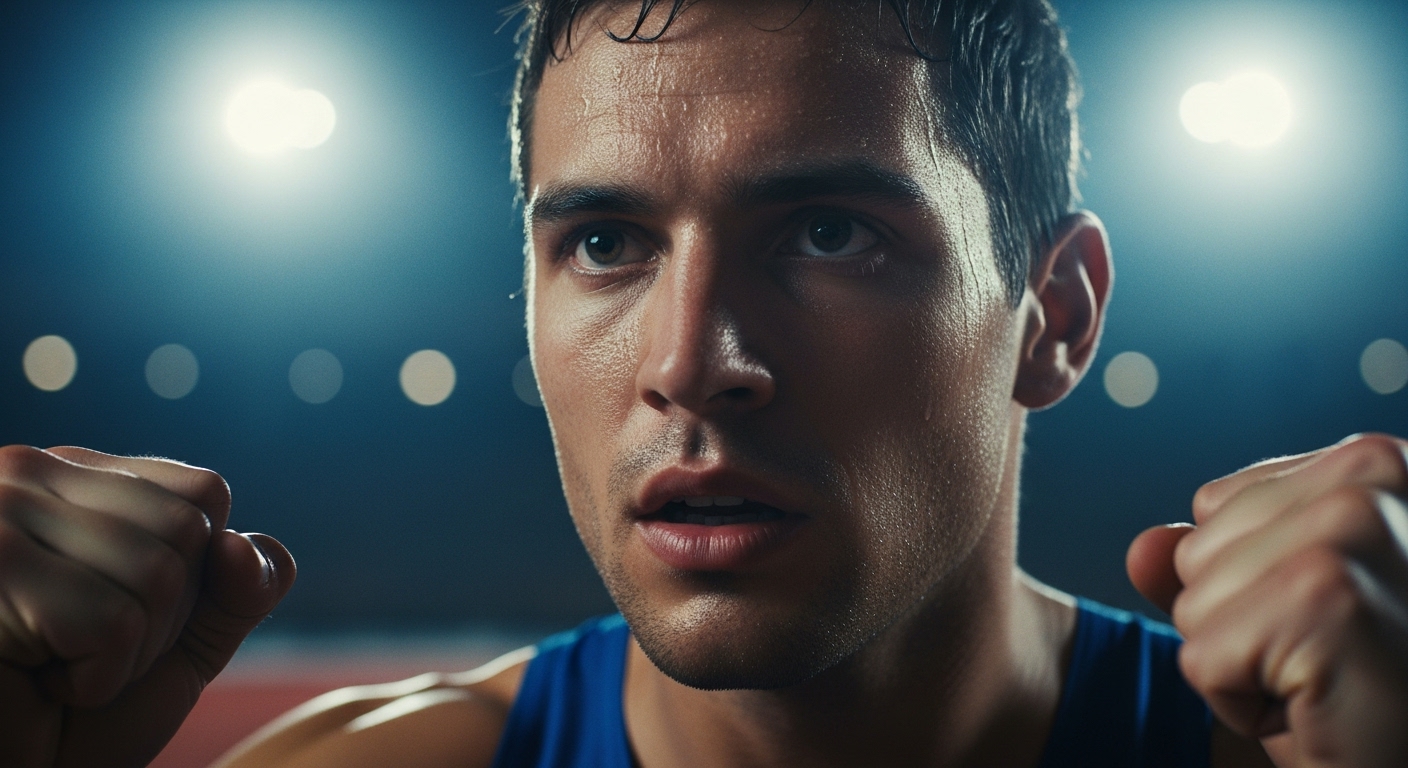Sports have always been more than just games. They are stories of human spirit, resilience, teamwork, and dreams. Across every continent, from ancient arenas to modern stadiums, sports have united people beyond borders, languages, and cultures. They have the power to make us cheer, cry, and believe in something bigger than ourselves.
This blog explores the multifaceted world of sports — their history, their influence on society, their role in personal development, and their enduring significance in our modern lives.
The Ancient Roots of Sports
The origins of sports can be traced back thousands of years. Ancient civilizations like Greece, Egypt, China, and Mesopotamia all had organized physical contests. The earliest known sporting events were often tied to religion, rituals, or preparation for war.
In ancient Greece, for example, sports were celebrated as a tribute to the gods. The Olympic Games, first held in 776 BCE in Olympia, were dedicated to Zeus. Events included running, wrestling, discus throwing, and chariot racing. Athletes competed not for money, but for glory and the honor of their city-states. The idea of physical excellence was deeply connected to moral and spiritual virtue — the concept of a “sound mind in a sound body.”
Meanwhile, in ancient Egypt, sports like wrestling, archery, and swimming were depicted on tomb walls, showing that physical prowess was admired. In China, early forms of martial arts and a game resembling soccer, known as cuju, were popular even 2,000 years ago. The ancient Mayans played a ball game called pok-ta-pok, which combined sport with religious ceremony.
These early examples show that sports have always been a part of human culture — not just as entertainment, but as an essential way of expressing identity, belief, and strength.
The Evolution of Modern Sports
Modern sports as we know them began to take shape in the 19th century. The Industrial Revolution played a big role in this transformation. With the rise of cities, formal education, and organized labor, people began to have structured leisure time. Sports became a way to stay fit, compete, and build character.
Britain, in particular, was a major influence on modern sports. Games like soccer (football), cricket, rugby, and tennis were codified in English schools and universities. From there, they spread to other parts of the world through trade, colonization, and global communication. The British Empire, for all its faults, was instrumental in exporting sporting culture to Asia, Africa, and the Americas.
The revival of the Olympic Games in 1896 marked a new era. Frenchman Pierre de Coubertin believed sports could foster peace and mutual respect among nations. His dream turned into the modern Olympics — a global celebration of athletic excellence that continues to inspire millions.
The Globalization of Sports
Today, sports are universal. Every corner of the planet has its passion. In Brazil and Argentina, soccer is a religion. In the United States, basketball, baseball, and American football dominate. In India, cricket is more than a game — it’s an emotion that binds over a billion people. In Japan, baseball and sumo wrestling are deeply rooted in the culture.
The 20th and 21st centuries saw sports become global industries. Television and the internet turned local games into worldwide spectacles. A soccer match between Barcelona and Real Madrid can attract hundreds of millions of viewers from around the globe. The FIFA World Cup, the Olympic Games, and events like the Super Bowl are among the most-watched broadcasts in history.
This globalization has also created global icons. Athletes like Pelé, Muhammad Ali, Serena Williams, Usain Bolt, Michael Jordan, and Lionel Messi transcend borders. They are not just champions on the field but symbols of excellence, courage, and social change.
The Role of Sports in Society
Sports have a profound impact on societies and cultures. They teach values like discipline, teamwork, perseverance, and respect. They can bring communities together, heal divisions, and inspire social movements.
In many countries, sports have been used as tools of diplomacy. For example, “ping-pong diplomacy” helped ease tensions between the United States and China in the 1970s. Similarly, the Rugby World Cup in post-apartheid South Africa became a symbol of unity under Nelson Mandela’s leadership.
Sports can also highlight social issues. Athletes have used their platforms to speak out on racism, gender inequality, and human rights. When American sprinters Tommie Smith and John Carlos raised their fists during the 1968 Olympics, they made a powerful statement for civil rights. In recent times, movements like “Black Lives Matter” have found support across sports leagues worldwide.
At a local level, sports can change lives. Community programs that promote sports among children encourage healthy living, reduce crime rates, and teach cooperation and self-esteem. For many underprivileged youth, sports offer a path out of poverty and a chance to dream big.
The Science and Technology of Sports
The modern athlete is not just a person of strength and skill — they are a product of science. Advances in sports medicine, biomechanics, nutrition, and data analytics have revolutionized how athletes train and compete.
High-speed cameras, sensors, and performance-tracking software allow coaches to analyze every movement. Data-driven insights help players optimize their performance and prevent injuries. Wearable devices monitor heart rates, sleep patterns, and recovery times.
Sports medicine has made incredible strides. Athletes who once faced career-ending injuries can now return stronger thanks to surgery, physiotherapy, and rehabilitation technology. Nutritionists design custom diets that enhance endurance and muscle growth. Psychologists work on mental conditioning to help athletes handle pressure and maintain focus.
Even equipment has evolved dramatically. Lightweight running shoes, aerodynamic bicycles, moisture-wicking clothing, and advanced rackets give modern athletes an edge their predecessors could only dream of. In motorsports, engineering precision can make the difference between victory and defeat.
Technology has also changed how we experience sports as spectators. Instant replays, virtual reality, and high-definition broadcasts bring fans closer to the action than ever before. E-sports, the digital offspring of traditional competition, now attract millions of players and viewers around the world.
The Business of Sports
Sports today are also big business. From ticket sales and broadcasting rights to sponsorships and merchandise, the global sports industry is worth hundreds of billions of dollars. Major leagues like the NFL, NBA, English Premier League, and IPL generate enormous revenue.
Corporate partnerships play a crucial role. Brands see sports as powerful marketing platforms because athletes represent aspiration, energy, and credibility. Companies spend vast sums to have their logos on jerseys, stadiums, and advertising boards.
Player salaries have skyrocketed, reflecting their marketability and global fan bases. Top footballers and basketball players earn not only from their clubs but also from endorsements and media appearances. This commercial aspect, while controversial to some, has made sports one of the most lucrative entertainment sectors in the world.
At the same time, the business side raises important ethical questions. Issues like corruption, doping, match-fixing, and exploitation of young talent continue to challenge the integrity of sports. Governing bodies must balance profit with fair play and transparency.
The Emotional Connection: Why We Love Sports
Beyond money, fame, or even physical achievement, sports are deeply emotional. They tap into our primal instincts of competition, survival, and belonging. Watching your favorite team win or lose can feel intensely personal because sports connect to identity.
Fans see their teams as extensions of themselves. A victory feels like collective glory; a defeat feels like shared heartbreak. This connection builds loyalty that can last a lifetime. Stadiums become temples of passion where strangers hug and cry together.
Sports also teach us life lessons. Every game mirrors life’s unpredictability — the highs of success, the lows of failure, and the importance of perseverance. An athlete coming back from injury, a team overcoming the odds, or an underdog triumphing on the world stage all remind us of what humans are capable of when they refuse to give up.
Moreover, sports provide an escape from daily life. They give us heroes to admire, stories to follow, and a sense of community that transcends differences. In moments of victory or defeat, we are reminded of our shared humanity.
Women in Sports: Breaking Barriers
For centuries, women were excluded or discouraged from participating in sports. Social norms and gender biases kept them on the sidelines. But over time, courageous women challenged these barriers and reshaped history.
Trailblazers like Billie Jean King in tennis, Wilma Rudolph in track and field, and Nadia Comăneci in gymnastics proved that women could achieve greatness equal to men. The rise of global stars like Serena Williams, Simone Biles, and Megan Rapinoe has further pushed the boundaries of athletic excellence and gender equality.
Today, women’s sports are gaining long-overdue recognition. Events like the FIFA Women’s World Cup attract record audiences, and more leagues are investing in female athletes. Equal pay, representation, and facilities remain ongoing battles, but progress is undeniable.
The inclusion of women in all levels of competition also inspires future generations. Young girls can now see role models who look like them succeeding on the biggest stages — a powerful motivator for confidence and ambition.
Sports and Mental Health
In recent years, the conversation about mental health in sports has become louder and more urgent. The pressure to perform, media scrutiny, and public expectations can take a toll on athletes’ well-being.
High-profile athletes like Naomi Osaka and Simone Biles have spoken openly about their struggles, encouraging others to prioritize mental health. Their honesty has shifted the narrative — showing that strength is not just physical endurance but emotional balance as well.
Sports psychology now plays a vital role in performance. Techniques like visualization, meditation, and cognitive behavioral therapy help athletes manage anxiety, stay focused, and maintain motivation.
For everyday people, sports and exercise are proven to reduce stress, boost mood, and improve mental health. Whether it’s running, swimming, yoga, or playing team sports, physical activity releases endorphins that make us feel better and more energized.
Sports and Education
Sports and education go hand in hand. Schools and universities around the world use sports to teach teamwork, discipline, and leadership. Athletic scholarships give talented students opportunities for higher education and personal growth.
In physical education programs, students learn about fitness, nutrition, and healthy lifestyles — skills that last a lifetime. Beyond that, sports teach social skills like cooperation, respect for rules, and communication.
Some of the greatest leaders in history have credited sports for shaping their character. The lessons learned on the field — resilience, strategy, humility — often translate into success in life and business.
The Future of Sports
The future of sports is exciting and unpredictable. Technology, globalization, and changing lifestyles will continue to shape how we play, watch, and experience games.
E-sports and virtual competitions are redefining what it means to be an athlete. Artificial intelligence and augmented reality could revolutionize training methods. Sustainable stadiums and eco-friendly initiatives are making sports more environmentally conscious.
Inclusivity will remain a major focus. Efforts to make sports accessible to all — regardless of gender, ability, or background — will continue to grow. Adaptive sports for people with disabilities are gaining momentum, breaking stereotypes and showcasing incredible human potential.
Youth participation will also be key. In a world dominated by screens, sports offer real-world connection, teamwork, and healthy living. Encouraging children to play is not just about fitness but about building future generations of confident, compassionate individuals.
Conclusion: The Eternal Spirit of Sports
Sports are more than competition — they are a universal language. They teach us about effort, respect, courage, and unity. Whether played on dusty village grounds or in billion-dollar arenas, sports represent the best of humanity’s drive to challenge itself and connect with others.
In every victory and defeat, in every roar of the crowd and tear of an athlete, sports remind us of who we are — beings capable of greatness, perseverance, and joy. They will continue to evolve, inspire, and unite us for generations to come.
The story of sports is, ultimately, the story of us — our dreams, our struggles, and our triumphs. And that story will never end.



